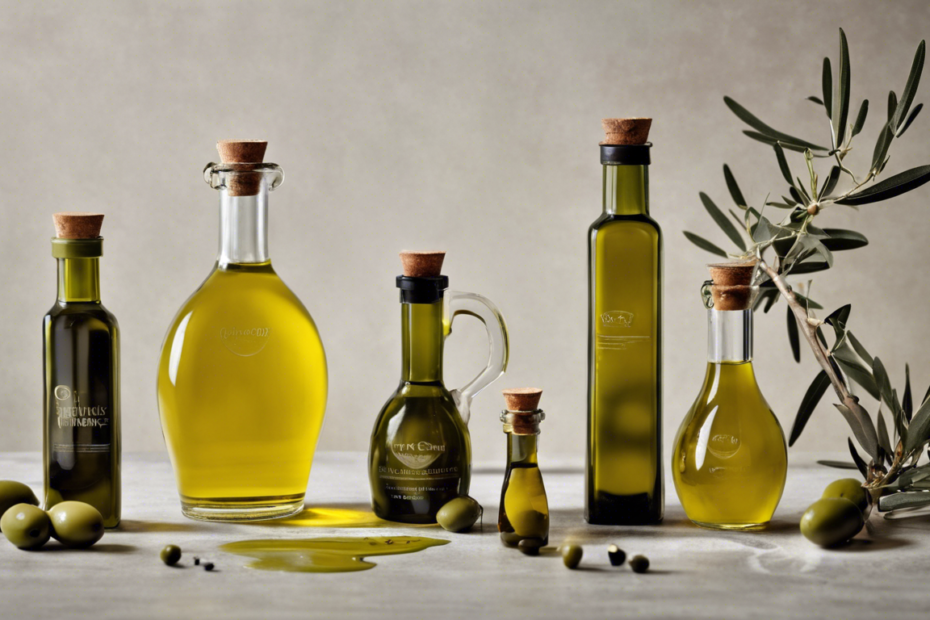Are you ready to elevate your cooking with the finest olive oils?
In this guide, we’ll take you on a journey through the world of olive oils, helping you understand the different types available and what to look for when choosing the best one for your kitchen.
Plus, we’ll share tips on how to store and use your olive oil to keep it fresh and flavorful!
Let’s dive in!
How to Store and Use Olive Oil for Maximum Freshness
When it comes to storing and using olive oils, keeping them fresh is key for getting the most flavor and health benefits out of that liquid gold.
First things first, always opt for dark glass bottles or tin containers; they protect the oil from light and prevent it from going rancid.
Store your olive oil in a cool, dark place, away from heat sources like stoves or direct sunlight – a kitchen cupboard is often ideal.
Once opened, try to use your olive oil within six months to a year for peak freshness.
When it comes to using it, don’t be shy!
Drizzle it on salads, use it for dipping bread, or finish off your roasted veggies with a splash.
Just remember, high-quality olive oil shines best when used cold or at low temperatures – so save that fancy stuff for dressing and drizzling, and use a more affordable option for frying or baking.
Frequently Asked Questions
What are the different types of olive oils available?
There are several types of olive oils, including extra virgin, virgin, pure, and light olive oil.
Extra virgin is the highest quality, made from cold-pressed olives with no chemical treatments.
Virgin is also high quality but may contain minor defects.
Pure olive oil is a blend of refined and virgin oils, while light olive oil is more about calories and not necessarily lighter in flavor.
How can I tell if I’m choosing a quality olive oil?
Look for olive oils that are labeled as ‘extra virgin’ and check for certification seals.
Also, pay attention to the harvest date on the bottle to ensure freshness, and try to buy oils in dark glass bottles to protect them from light.
What are the best ways to store olive oil?
To keep olive oil fresh, store it in a cool, dark place, away from heat and light.
A pantry or cupboard is ideal.
Once opened, it’s best to use it within six months to maintain its quality.
Can I use olive oil for cooking, or is it only for dressings?
You can absolutely use olive oil for cooking!
It’s great for sautéing, roasting, and drizzling on dishes.
Just be mindful of the smoke point; extra virgin olive oil has a lower smoke point than refined oils, so for high-heat cooking, you might want to opt for light or pure olive oil.
What health benefits are associated with olive oil?
Olive oil is known for its heart-healthy properties, as it is rich in monounsaturated fats and antioxidants.
Regular consumption may reduce the risk of heart disease, lower cholesterol levels, and even have anti-inflammatory effects.
